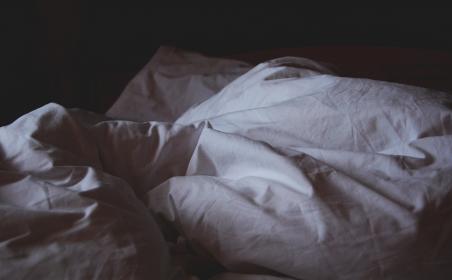Elderly Insomnia: Is it Affecting You?

Seniors face unique struggles when it comes to sleep. If you’re feeling exhausted and worn down in the morning, elderly insomnia could be one of the reasons why. Do you have trouble falling asleep or staying asleep for the entire night? It might be time to see your doctor to find out what’s causing your sleep trouble and learn how you can adjust your habits and medications to get the appropriate amount of sleep on a nightly basis.
How Much Sleep Do You Need?
Older adults need at least seven to nine hours of sleep per night. It’s a misconception that the elderly need less sleep because they are older. The only difference between seniors and younger adults is that the sleep-wake cycle of seniors shifts to earlier in the day as bodies age. This causes seniors to become tired earlier in the evening and wake up earlier in the morning. Regardless, seven to nine hours of sleep is still necessary for older adults to feel rested and energized.
What’s Causing Your Insomnia?
According to the National Institute of Health, insomnia affects almost 50 percent of adults 60 and over. There are a host of reasons why elderly insomnia is a major health issue.
First of all, seniors who are prescribed medications for other health reasons may find that the drug side effects or interactions can lead to trouble falling or staying asleep. Some medical conditions directly cause insomnia, such as depression or sleep apnea. Other health conditions, such as arthritis or osteoporosis, could be causing pain that leads to loss of sleep.
Diagnosis and Treatment
It’s important to talk to your doctor if you believe you’re experiencing elderly insomnia because in many cases there are simple solutions that could help you return to a restful nightly sleep.
For a professional diagnosis, your physician will ask you questions about your sleep habits, such as what time you go to bed, what time you fall asleep and what time you wake. You may be asked to record a sleep diary for a few weeks, listing exact times and reasons for waking. Your doctor may also recommend that you attend a sleep study, where you stay overnight so your heart rate, oxygen levels and sleep stages are measured.
If your doctor determines that there are specific medications or health conditions that are causing insomnia, addressing these issues directly will be the first step in solving your sleep problems. You can also try to correct your body’s sleep disruptions by going to bed at the same time every day and establishing a relaxing sleep routine. You should also limit caffeine, schedule your exercise for early in the day and stop taking naps.
Your doctor can help you discover the root of the problem and overcome elderly insomnia. You deserve a good night’s sleep – it’s essential for good health. For information on whether your current insurance plan covers elderly insomnia doctor visits, treatment and prescriptions, talk to the team at My Senior Health Plan today.

